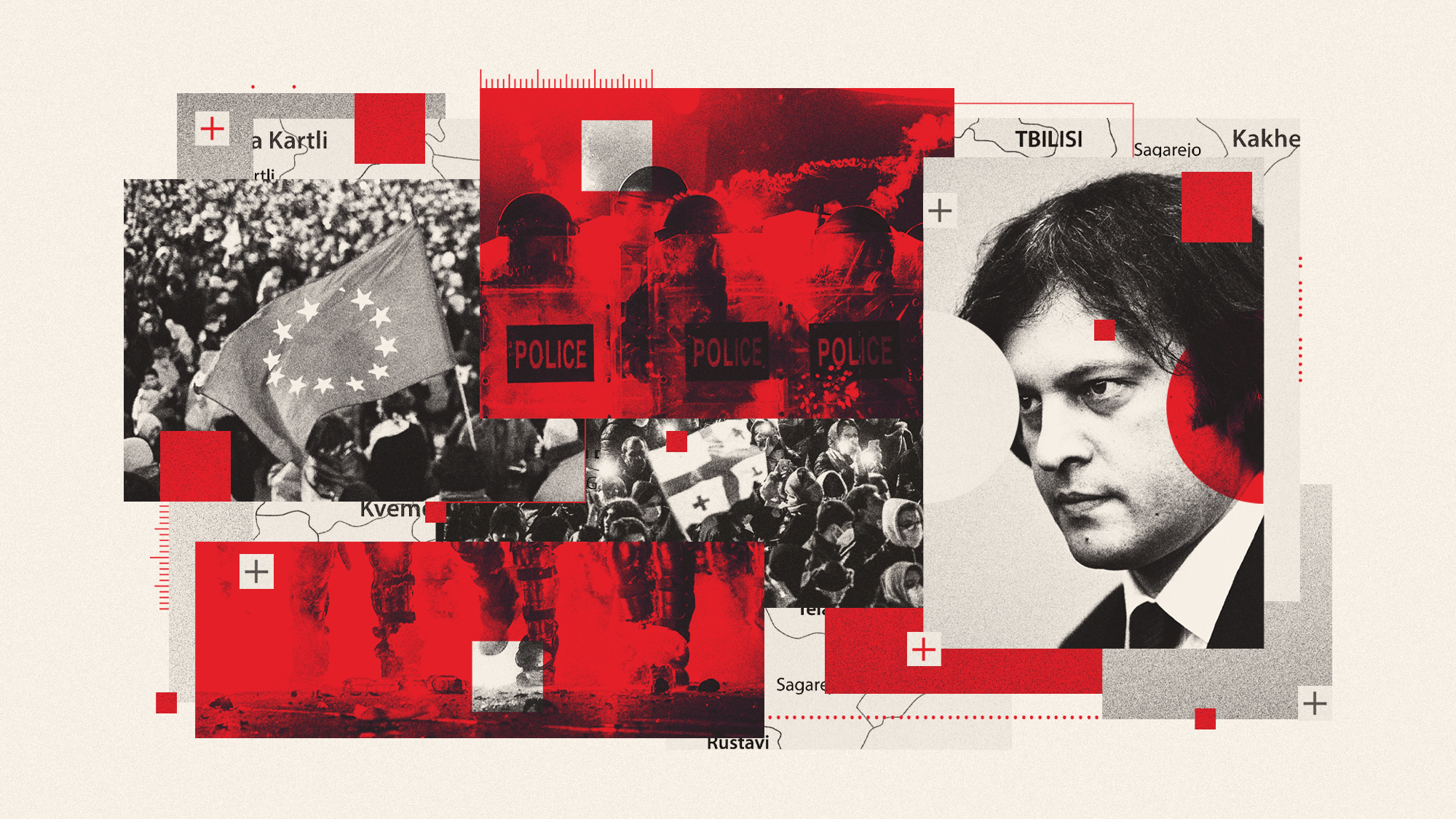Can Georgia protests halt pro-Russia drift?
Government U-turn on EU accession sparks widespread unrest that echoes Ukraine's revolution a decade ago

A free daily email with the biggest news stories of the day – and the best features from TheWeek.com
You are now subscribed
Your newsletter sign-up was successful
Georgia is facing a fifth day of unrest after the government's decision to suspend the country's efforts to join the European Union sparked mass resignations and, for the first time, nationwide demonstrations.
Tensions have been "brewing for months" in the former Soviet republic, said CNN. Critics accuse the ruling Georgian Dream party of following "increasingly authoritarian, pro-Russia policies in a turn away from the West" that has tempered hopes for Georgia's long-promised path to EU membership.
These tensions intensified in late October when Georgian Dream claimed victory in a contested election that was "widely seen as a referendum on joining the EU". They finally spilled over on Thursday after Prime Minister Irakli Kobakhidze announced the country would suspend accession talks until at least 2028.
The Week
Escape your echo chamber. Get the facts behind the news, plus analysis from multiple perspectives.

Sign up for The Week's Free Newsletters
From our morning news briefing to a weekly Good News Newsletter, get the best of The Week delivered directly to your inbox.
From our morning news briefing to a weekly Good News Newsletter, get the best of The Week delivered directly to your inbox.
What did the commentators say?
Thursday's announcement by Kobakhidze – "a pliant ally" of Russia – has "lit a fuse" among the electorate, said Tortoise Media. Georgia's population of 3.7 million people overwhelmingly supports the so-called "European Path", putting it on course for a "collision with the government that echoes the genesis of Ukraine's Revolution of Dignity in 2014".
The result is a "battle for the soul of Georgia that's also part of a now-familiar contest between democracy and Putinism". A string of top officials including five ambassadors and Deputy Foreign Minister Temur Janjali have already resigned in protest at the PM's announcement.
Despite polls consistently showing most Georgians support EU membership, Kobakhidze said the EU was using the talks as "blackmail" to "organise a revolution in the country", after the European Parliament rejected last month's election results, citing alleged irregularities.
Over the past four nights, tens of thousands of demonstrators have taken to the streets, forming barricades around the parliament building in the capital Tbilisi. The protests this time have taken on a "new dimension", said Tortoise. Having been previously confined to Tbilisi, they have spread to "every major city and to rural backwaters traditionally more pro-government".
A free daily email with the biggest news stories of the day – and the best features from TheWeek.com
Many Georgians have been "shocked" by the level of violence directed at Georgian journalists as well as protesters, said the BBC. Dozens of reporters have been beaten or pepper-sprayed, leaving some in need of hospital treatment.
Georgia's ex-ambassador to the EU, Natalie Sabanadze, who is now at the UK's Chatham House think tank, told the BBC the level of violence, the string of resignations and civil disobedience indicate a "qualitative change" to the protests now taking place.
"Maybe [the government] thought people would be scared, but it's not working out like this," she said.
What next?
Parallels are being drawn with Ukraine in 2013. Then, the country's president Viktor Yanukovych attempted to move the country away from the West's influence, but that "led to mass protests that lasted for months and ended in bloodshed and his fleeing the country for Russia", said The New York Times. Like their Ukrainian counterparts then, Georgian opposition politicians – who have refused to take up their seats in the new parliament – regard the pursuit of EU membership as an "existential choice that would mark the country's departure from Moscow’s orbit forever".
But, divided and lacking a coherent plan, opponents are "only marginally more popular than the government", said Tortoise, while the movement's "decentralised structure makes it vulnerable". To succeed, "the protesters will have to dig in as in Kyiv in 2014".
Elliott Goat is a freelance writer at The Week Digital. A winner of The Independent's Wyn Harness Award, he has been a journalist for over a decade with a focus on human rights, disinformation and elections. He is co-founder and director of Brussels-based investigative NGO Unhack Democracy, which works to support electoral integrity across Europe. A Winston Churchill Memorial Trust Fellow focusing on unions and the Future of Work, Elliott is a founding member of the RSA's Good Work Guild and a contributor to the International State Crime Initiative, an interdisciplinary forum for research, reportage and training on state violence and corruption.